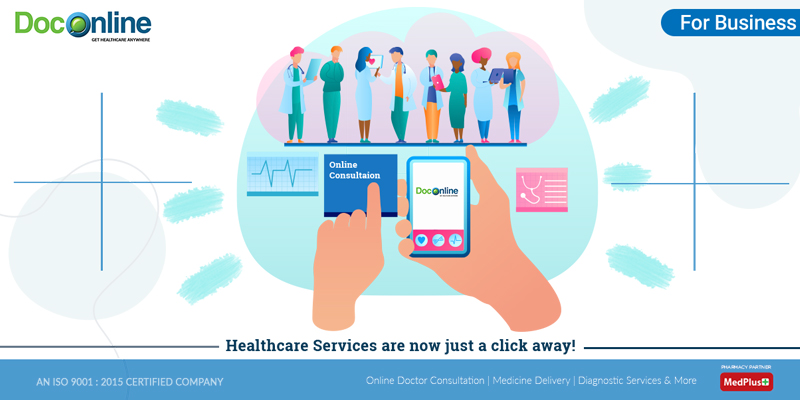The Surge of Subscription-Based Healthcare and Its Effect On Person Treatment
As healthcare develops, the subscription-based design is getting grip, assuring to revolutionize client care by providing predictability and access. These models, which bypass traditional insurance coverage, might redefine the patient-doctor dynamic, stressing precautionary and tailored treatment. As with any type of innovation, they offer obstacles, specifically worrying equitable access for all socioeconomic groups. The potential for these models to reshape healthcare delivery elevates pushing concerns about their lasting sustainability and inclusivity. Are these registration solutions the future of healthcare, or do they risk leaving vulnerable populaces behind? The ins and outs of this shift warrant a closer exam.
Recognizing Membership Healthcare Versions
Grasping the idea of registration health care versions includes checking out a transformative technique to clinical services that stresses cost and ease of access. These designs, frequently described as direct main care (DPC) or concierge medicine, have actually become ingenious choices to traditional fee-for-service health care systems. Registration healthcare enables individuals to pay a set monthly or annual charge for a specified set of medical solutions, which might include endless office brows through, regular examinations, and fundamental lab tests, without the need for standard insurance coverage payment.
The structure of membership medical care models is designed to improve client treatment by getting rid of third-party payers and complex invoicing codes, therefore decreasing administrative concerns. Health care carriers can concentrate extra on individual treatment, cultivating stronger patient-provider partnerships. This version also promotes preventative care by motivating regular check outs, as the economic challenge of per-visit charges is eliminated.
The registration design usually equips doctor to take care of smaller sized person panels, permitting more personalized treatment. It aligns economic rewards with person wellness outcomes, as service providers are motivated to maintain person fulfillment and wellness. On the whole, comprehending registration healthcare versions needs recognizing their prospective to improve how treatment is provided and accessed.
Advantages for Suppliers and patients

For carriers, subscription-based versions supply the chance to strengthen patient-provider partnerships. With a stable profits stream, health care specialists can commit more time to each individual, resulting in a much more thorough and tailored care experience. This version likewise lowers reliance over client quantities, easing exhaustion and boosting job satisfaction. The emphasis on preventive treatment within subscription strategies can lead to better person outcomes and reduced long-term healthcare expenses. By focusing on continual care, companies can attend to concerns before they escalate, inevitably profiting the healthcare system overall by minimizing the burden on emergency and acute care services.
Challenges and Problems
While subscription-based medical care designs existing countless advantages, they also come with a set of challenges and worries that must be dealt with. This elevates honest concerns about equitable access to medical care solutions.
Financial sustainability of subscription-based models is an additional worry. Service providers should stabilize the set earnings from registrations with the variable expenses more tips here of health care services, which may vary because of unexpected clinical demands. This can develop pressure to limit solutions or rise costs, potentially affecting client satisfaction and care high quality.
Moreover, regulatory oversight of subscription-based health care versions is still developing. Dealing with these challenges is vital for the fair and effective implementation of subscription-based healthcare.
Influence On Patient-Doctor Relationships
One considerable impact of subscription-based health care models on patient-doctor relationships is the capacity for boosted connection and individualized care. By adopting a registration model, physicians can take care of a smaller person panel, enabling for even more committed time with each individual. This increased accessibility fosters a deeper understanding of a person's medical history, way of living, and choices, enabling a lot more customized treatment plans and interventions.

Nonetheless, it is very important to acknowledge that while subscription-based designs may profit those that can manage them, they can unintentionally broaden health care variations. Individuals who are unable to take part in these designs could experience decreased access to individualized treatment, possibly affecting their relationships with health care carriers. Thus, while the registration version uses promising benefits for patient-doctor connections, it additionally postures obstacles that need to be addressed to make sure equitable health care gain access to.
Future of Health Care Access

The function of innovation can not be overlooked in this makeover. Telemedicine systems and digital wellness records promote smooth communication in between individuals and medical care providers, damaging down geographical and logistical barriers. Furthermore, developments in synthetic knowledge and information analytics can better individualize treatment by predicting client requirements and enhancing therapy plans.
However, the future of healthcare access also offers challenges, such as making sure equity across various socio-economic groups. Policymakers and doctor must collaborate to bridge the electronic divide, making sure that subscription-based designs continue to be budget friendly and comprehensive. As these systems mature, they hold the guarantee of making health care much more accessible, reliable, and patient-centric.
Conclusion
Subscription-based healthcare designs are reshaping client care by providing a stable price structure and boosting availability. The surge of subscription-based healthcare encourages proactive individual engagement, which has the potential to enhance patient results and satisfaction, indicating a transformative shift in health care delivery.
As medical care progresses, look these up the subscription-based design is acquiring traction, assuring to change client care by offering predictability and access.Subscription-based healthcare designs supply distinct advantages for both individuals and carriers, improving the total health care experience.As healthcare systems advance, the future of health care gain access to frequently pivots on the combination of cutting-edge models and innovations.Subscription-based health care designs are improving patient treatment by offering a stable expense framework and boosting ease of access. The rise of subscription-based medical care motivates positive person engagement, which has the possible to enhance client outcomes and satisfaction, signifying a transformative change in medical care distribution.